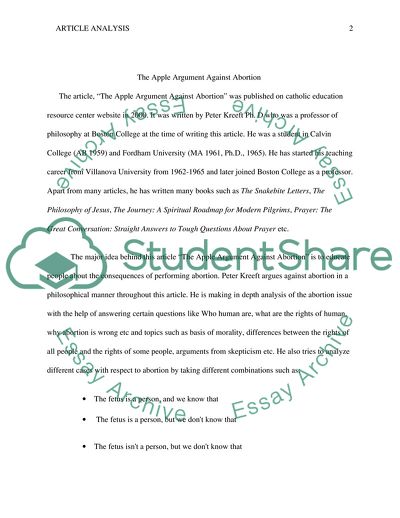Cite this document
(Analysis of The Apple Argument Against Abortion Article by Peter Essay, n.d.)
Analysis of The Apple Argument Against Abortion Article by Peter Essay. https://studentshare.org/social-science/1754081-logics-analysis-of-a-chosen-article-inductive-deductive-analogical-reasoning-etc
Analysis of The Apple Argument Against Abortion Article by Peter Essay. https://studentshare.org/social-science/1754081-logics-analysis-of-a-chosen-article-inductive-deductive-analogical-reasoning-etc
(Analysis of The Apple Argument Against Abortion Article by Peter Essay)
Analysis of The Apple Argument Against Abortion Article by Peter Essay. https://studentshare.org/social-science/1754081-logics-analysis-of-a-chosen-article-inductive-deductive-analogical-reasoning-etc.
Analysis of The Apple Argument Against Abortion Article by Peter Essay. https://studentshare.org/social-science/1754081-logics-analysis-of-a-chosen-article-inductive-deductive-analogical-reasoning-etc.
“Analysis of The Apple Argument Against Abortion Article by Peter Essay”. https://studentshare.org/social-science/1754081-logics-analysis-of-a-chosen-article-inductive-deductive-analogical-reasoning-etc.


